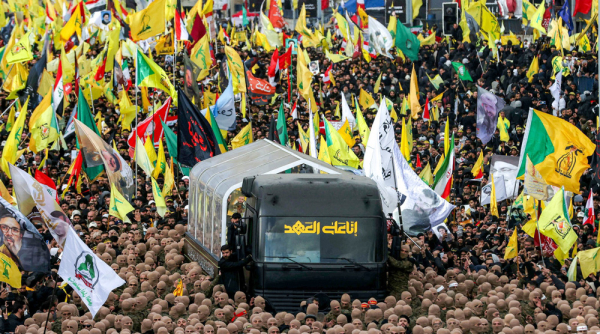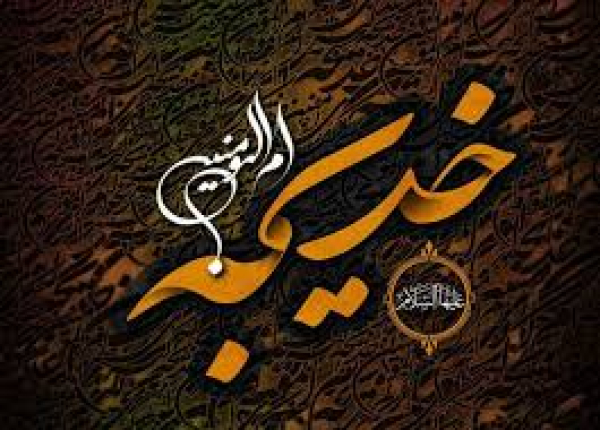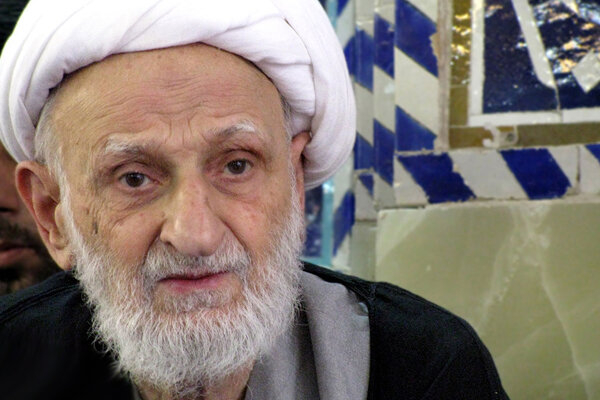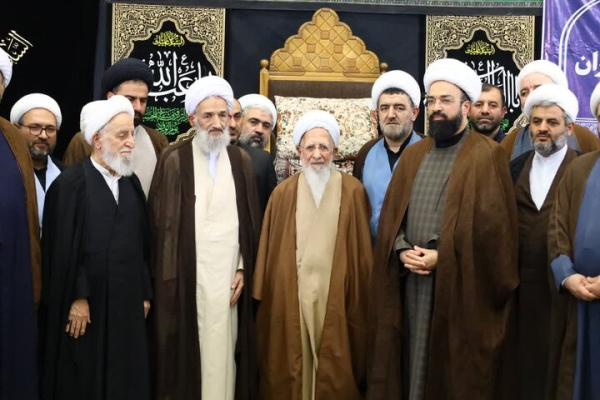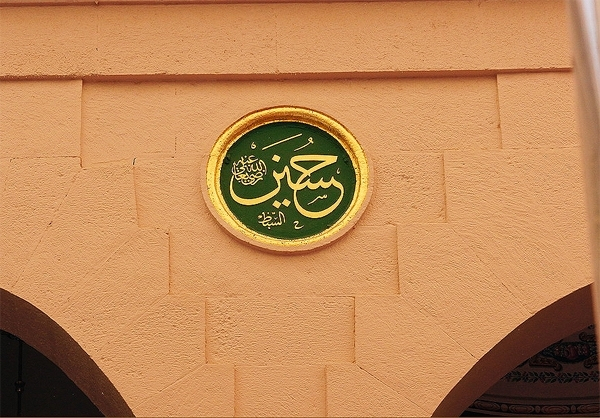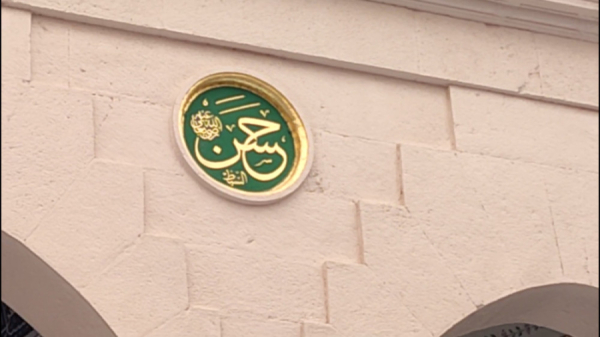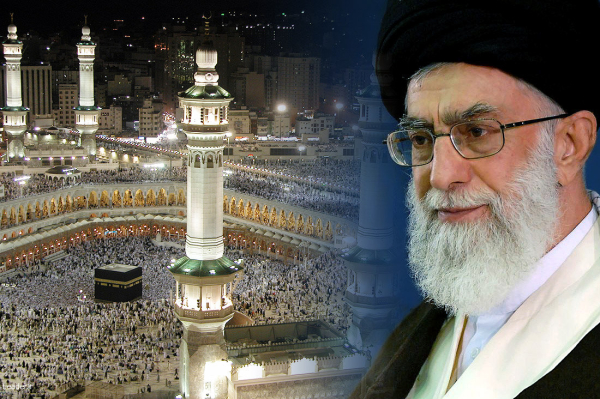zarezadeh
Nasrallah, Safieddine symbols of 'graceful resistance': Iran's Foreign Ministry spokesman
Mourners walk during the funeral procession with the vehicle carrying the coffins of Hezbollah's martyred leaders Hassan Nasrallah and Hashem Safieddine from the Camille Chamoun Sports City Stadium towards the burial place on the outskirts of Beirut on February 23, 2025. (Photo by AFP)
Iranian Foreign Ministry spokesman Esmaeil Baghaei has described martyred Hezbollah leader Sayyed Hassan Nasrallah and his deputy and appointed successor Sayyed Hashem Safieddine as symbols of resistance.
Baghaei said on Sunday their steadfastness in support of the oppressed people of Palestine will always be remembered.
The spokesman made the remarks in a post on X as the funeral ceremonies of Nasrallah and Safieddine were being held in the Lebanese capital, Beirut, on Sunday.
“Nasrallah and Safieddine devoted their whole life to the cause of humanity and dignity by standing up against brutal occupation, oppression and injustice,” Baghaie said.
He went on to say that these two great men “symbolize graceful resistance” against occupation, aggression and support for the Palestinian people to achieve their fundamental right to self-determination.
“They are immortal now; every Muslim, and indeed every man/women of a good conscience, will always remember and exalt these devout heroes for their exemplary steadfastness, bravery and sacrifice in support of their fellow Muslims in occupied Palestine and for their patriotism and love of their homeland,” the spokesman said.
Baghaie further noted that today, peace-loving people across the globe and West Asia, alongside Muslims and the Lebanese people, will pay tribute to these two great martyrs.
"So let those fight in the way of Allah who exchange the life of this world for the Hereafter. And whoever fights in the way of Allah and is killed or victorious - We will give him a great reward," he said.
Nasrallah, the iconic leader of the Lebanese resistance, was assassinated in Israel’s strikes on southern Beirut on September 27, 2024, following the regime’s week-long bombing campaign that hit many areas from the country’s south to the capital.
Safieddine was also assassinated in an Israeli attack on October 3, 2024.
Hezbollah postponed funeral ceremonies for both leaders due to fears of Israeli attacks on the ceremony.
Press TV’s website
Khadijah's Status in the Presence of God
God Almighty has repeatedly revealed Khadijah's status and status in various ways, and has revealed her high status in the presence of God, as some examples are mentioned:
Special Divine Greeting
On many occasions, Gabriel sent a divinely-recommended and affirmative greeting to Khadijah. Abu Hurairah narrated that:
"أتي جَبْرَئيلُ النَّبيَّ صلي الله عليه وآله، فَقالَ: هذِهِ خَديجَةُ قَدْ أتَتْكَ مَعَها إناءٌ مُغطّي فيه إدامٌ أوْ طَعامٌ أوْ شَرابٌ فَإذا هِيَ أتَتْكَ فَاقْرَأ عَلَيْها السَّلامَ مِنْ رَبِّها، وَمِنِّي السَّلام...؛ "
Gabriel came to the Prophet and said: Khadija will come to you with a covered vessel containing stew, food, or drink, so when she comes, convey to her the greetings of her Lord and my greetings.
In an other narration:
"إنَّ جَبْرَئيلَ أتي النَّبِيَّ صلي الله عليه و آله فَقالَ إقْرَءْ خَديجَةَ مِنْ رَبِّها السَّلامَ فَقالَ رَسولُ الله صلي الله عليه و آله: يا خَديجَةُ هذا جَبْرَئيلُ يُقْرِئُكَ مِنْ رَبِّكِ السلامَ، قالَتْ خَديجَةُ: اللهُ السَّلامُ وَمِنْهُ السَّلامُ وَعَلي جَبْرئيلَ السَّلامُ"؛
Indeed, Gabriel came to the Prophet and said: “Give greetings to Khadijah from her Lord.” The Prophet said: “O Khadijah, this is Gabriel who conveys greetings from your Lord.” Khadijah said: “God is peace and peace is from Him, and peace be upon Gabriel.”
Khadijah was a unique wife for the Prophet.
Sin is poison
Moral points from Ayatollah Bahjat (may Allah have mercy on him)
There is no higher and more important remembrance than the constant and permanent determination to abandon sin; that is, resolve that even if God gives you a hundred years to live, you will not commit even one sin, just as if you live a hundred years, you will not be willing to drink even a single drop of poison; the truth and reality of sin is poison.
For how many things is it obligatory to perform ablution?
For how many things is it obligatory to perform ablution?
Answer: Six things
-1 For obligatory prayers other than the funeral prayer
-2 For forgotten prostration and tashahhud, if he has done something between them and the prayer, for example, urinating.
-3 For the obligatory circumambulation of the Kaaba
-4 If he has made a vow, covenant, or oath to perform ablution.
-5 If he has made a vow to touch the writing of the Quran with a part of his body.
-6 He must perform ablution to wipe a Quran that has become impure.
How many conditions are there for a correct ablution?
How many conditions are there for a correct ablution?
Answer: There are thirteen:
-1 The water for ablution must be pure
2 The water for ablution must be absolute
3 The water for ablution must be permissible
4 The container for ablution must be permissible (not usurped)
5 The container for ablution must not be made of gold or silver
6 The parts of ablution must be pure when washing and wiping
7 The time for ablution and prayer must be sufficient
8 The person performs ablution with the intention of approaching the person
9 The person performs ablution in order
10 The person performs the ablution one after the other
11 The person does not perform ablution for the person
12 The person does not cause harm
13 The person does not have anything in the parts of ablution that prevents the water from reaching them
How can one recognize a Mujtahid who is the best scholar?
How can one recognize a Mujtahid who is the best scholar?
Answer: There are three ways to recognize a Mujtahid that is the best scholar:
-1 The person himself must be certain.
-2 Two just scholars who can recognize a Mujtahid and a scholar must confirm it, provided that the two just scholars do not contradict their statement.
-3 The statement of scholars who can recognize a Mujtahid and a scholar must be confirmed.
Who should be imitated?
Who should be imitated?
Answer: One should imitate a Mujtahid who is a complete Mujtahid, meaning a Mujtahid who is a man, an adult, a sane Shiite, who is not greedy for the world, and who is more knowledgeable than other Mujtahids, meaning he is lawfully born, alive, and just in understanding the rulings of the Twelve Imams;
and also, according to obligatory precaution, he should be more knowledgeable and accomplished than a Mujtahid from all the Mujtahids of his time.
The Story of Imam Husayn (A)
Imam Husayn (S) is the grandson of Prophet Muhammad (S) and the son of both Imam Ali (A) and Lady Fatimah (A). Prophet Muhammad (S) adored him and credited him with a number of important merits during his life. However some 50 years later he was brutally massacred for refusing to side with a corrupt tyrant. This is the story of Imam Husayn (A).
After the death of Muawiya, the son of Abu Sufiyan, his son Yazid came into power as a Caliph. This was in direct contradiction with the conditions of the truce that Muawiya had signed with Imam Hasan two decades earlier, where the caliphate was meant to return to Imam Husayn. As Yazid came into power and the Article of the Truce was broken, he began demanding allegiance from Imam Husayn in order to get support and legitimacy for his rule. Imam Husayn refused to give his allegiance to Yazid.
However, the situation in Medina became dangerous for the Imam, and he had no choice but to leave the city along with his family for Mecca. When he arrived in Mecca, the Imam began to receive numerous letters from residents of Kufa, many of whom were demanding that Imam Husayn should come to their city so that they could assist him in over throwing Yazid. A great deal of deliberation took place between the Imam and his companions, although most senior figures in Mecca told the Imam to abandon his journey to Kufa, the Imam, with his knowledge and wisdom, believed it was necessary to head towards the city of the people who had written to him and requested for his presence.
Earlier the Imam had also sent his ambassador and cousin, Muslim bin Aqil, to evaluate the situation on the ground in Kufa, and he was reassured that the grounds were ready for his arrival. During the Imam's journey to Kufa, he stopped at a junction called Jabala, where he was informed about the events that were unfolding in the city of Kufa. Yazid had replaced the previous governor with a more notorious person known as Ubaidullah Ibn Ziyad, who immediately cast terror and fear amongst the loyal supporters of Imam Husayn.
He had also quickly arrested Muslim bin Aqil and executed him. Many of the Kufan supporters of Imam Husayn were sent into shock and terror, eventually retracting back on their requests to the Imam. Some completely abandoned and betrayed their previous show of support. Those few who refused to back down were incarcerated by Ubaidullah Ibn Ziyad. The Imam, nevertheless, decided to move towards Kufa, hoping that if he could enter the city, his supporters may be motivated to rejoin him. However, he was blocked in doing so, by a battalion sent by Ibn Ziyad, led by Hurr Ibn Yazid.
Hurr prevented the Imam from entering the city and did not allow him to return back to Madina either. His battalion forced the Imam, his small group of followers and his family members to move towards a deserted and barren land called Karbala, which they reached by the 2ndof Muharram 61 Hijri. Once the Imam arrived in Karbala, Ibn Ziyad sent a large regiment of soldiers led by Umar Ibn Sa'ad, to confront the Imam. A few days of deliberation and exchange took place until on the 7th Muharram, the army of Umar Ibn Sa'ad blocked access to the river, for drinking water, to the Imam's camp.
On the 10th of Muharram, the Imam was repeatedly asked to give allegiance and to put his hand into the hand of Ibn Ziyad and ultimately Yazid, the Caliph. The Imam repeatedly refused to accept such an option. He chose martyrdom and death over the humiliation of having to give allegiance to the suppressive tyrant. An all out battle ensued, resulting in the martyrdom of Imam Husayn, along with his family and his companions in the most brutal of manners. The womenfolk and children were later taken to Damascus in the presence of Yazid, who rejoiced over his actions and showed no regret over his decisions.
Al Islam site
Imam Hasan ibn Ali, al-Mujtaba (p)
Imam Hasan ibn Ali, al-Mujtaba (peace be upon them)
Name: Hasan
Title: al-Mujtaba
Kunya: Abu Muhammad
Father: Ali ibn Abu Talib (Peace be upon him)
Mother: Fatimah bint Muhammad (Peace be upon them)
Born: 15th Ramadan, 3 AH/624 CE in Madinah, Hejaz region of the Arabian Peninsula
Died: 7th Safar, 50 AH/670 CE, after being poisoned by his wife, Ja’da.
Age at Martyrdom: 48
Period of Imamate: 9 years
Buried: Baqi’, Madinah, Hejaz region of the Arabian Peninsula
The Prophet's Grandson
Imam Hassan (AS) was the beloved grandson of the Prophet (PBUH) and the two had a special bond. The love between them was visible in private and public. He would hold Imam Hassan (AS) on his back and say, "O Allah, I love him, love him too!"
When the Prophet passed away, Imam Hassan (AS) was still a seven-year-old boy who missed his grandfather.
The Prophet was often heard praising Imam Hassan (AS). The Prophet praised both his grandsons and said, "Hasan and Hussain are the leaders of the youth in Paradise."
In other words, Imam Hassan (AS) is the leader of all the people of Paradise. With these narrations, the Prophet was referring to the great qualities that Imam Hassan (AS) displayed. There is no doubt that Imam Hassan (AS) was the most worthy person for the position of Imamate after his father, Imam Ali (AS).
Unity and Spirituality in Hajj
Ayatollah Khamenei also noted the point regarding unity that the political and cultural leaders of Islamic countries must coordinate with each other to prepare themselves for the conditions of the upcoming world order so that the Islamic Ummah can regain its rightful place.
He considered "spirituality", which is another of the two pillars of the effectiveness of the global call for Hajj, to mean promoting religious morality and confronting the charm of Western morality minus religion, and noted: Today, when the "unity" and "spirituality" of the Islamic Ummah are more exposed to hostility than before due to the opposition of America and other poles of arrogant domination to understanding Muslim countries and the religious education and religious education of the young generation of these countries, it is the duty of all Muslim nations and governments to confront this malicious plan.
